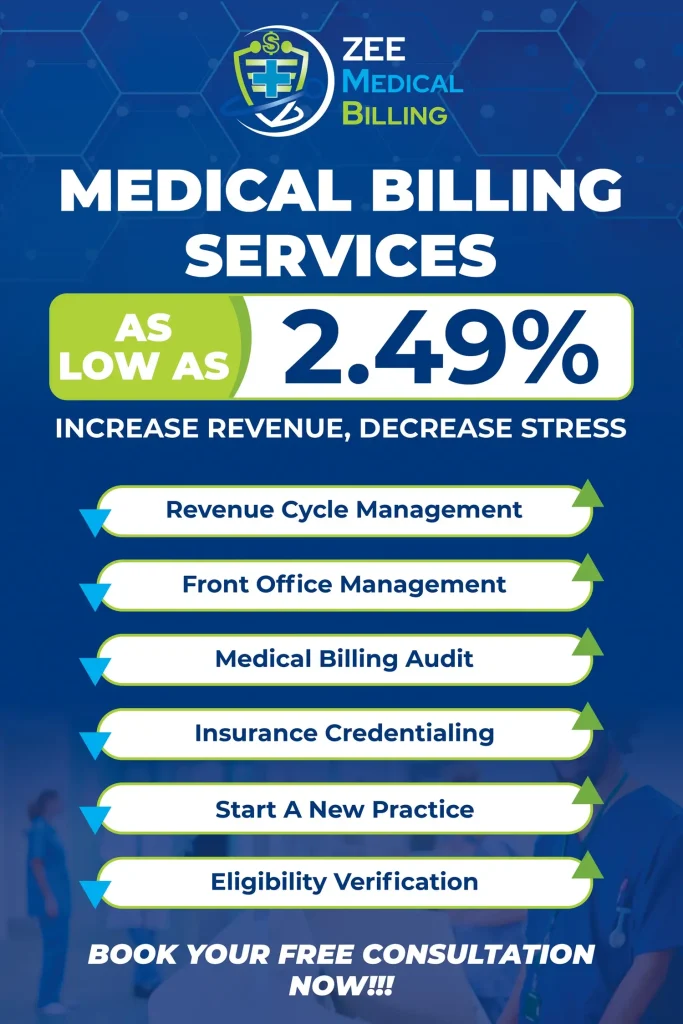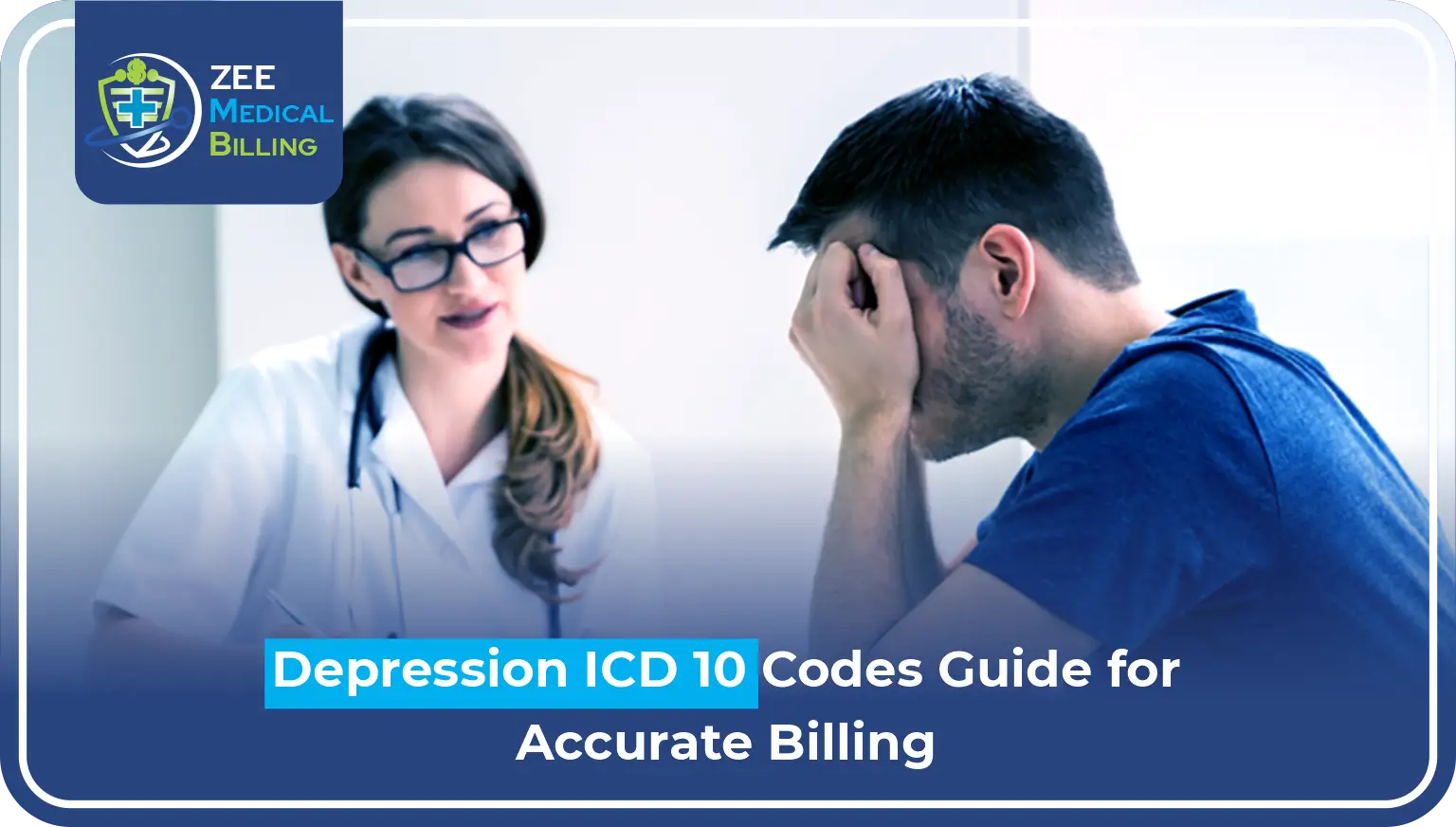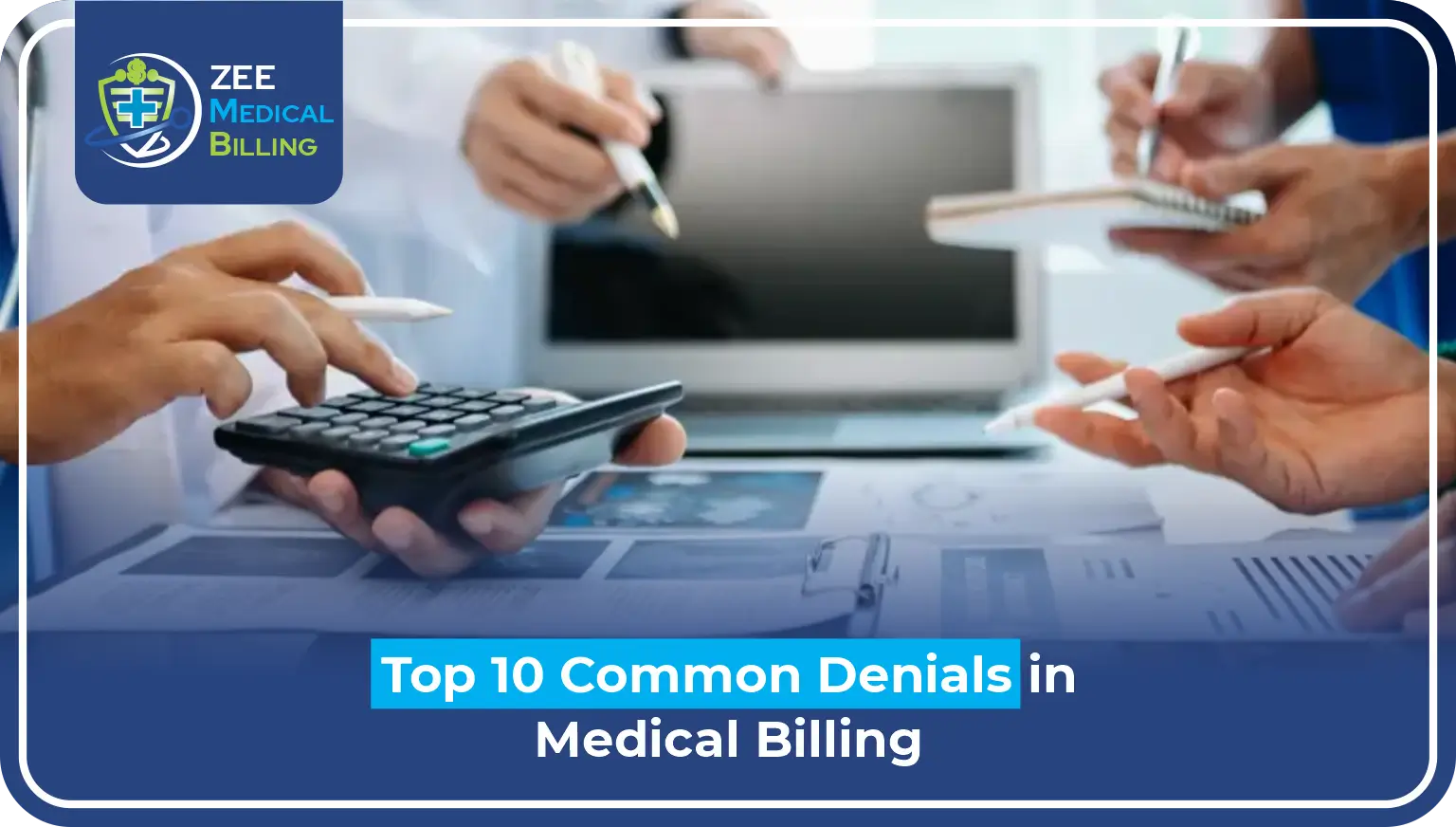Medical emergencies are stressful enough. But when the hospital bill arrives, especially if it’s sky-high and you can’t afford to pay, the anxiety only deepens. In the United States, where healthcare costs are notoriously steep, many people find themselves wondering.
Let’s break it down clearly and calmly. Unpaid medical bills can lead to serious problems, including collections, credit damage, lawsuits, and wage garnishments. If you ignore them, the issues can get worse quickly.
At Zee Medical Billing, we help patients and providers understand healthcare payments. We provide clarity and support when you need them most. This guide explains what happens if you don’t pay hospital bills. It also shows options to reduce or manage the impact.
Read More: Importance of Accurate Patient Data in Medical Billing
Medical Bills Don’t Just Disappear
You may be tempted to ignore the bill, hoping it will just vanish—but it won’t. Hospitals typically give patients 30 to 90 days to make payment arrangements. If no action is taken, the company will send the account to collections.
If you don’t pay a hospital bill once the account is in collections, the situation becomes much more serious. Collection agencies may call, send letters, and even report the debt to credit bureaus, affecting your credit score. That’s just the beginning.
Credit Score Takes a Hit
Failing to pay your hospital bills can hurt your credit report. While medical debt may appear on your credit report, recent changes have provided relief. As of 2023, paid medical bills are no longer included in credit reports.
Creditors can only report unpaid medical bills if they are overdue for 12 months. Once reported, they can lower your credit score. This makes it harder to get loans, find housing, or even get a job.
Yes, You Can Be Sued
Many people ask, Can you be sued for medical bills? The answer is yes.
If a hospital or collection agency cannot recover the debt, they can file a lawsuit against you. If you ignore the lawsuit, the court may issue a default judgment. From there, the legal system has more tools to collect your debts.
Wage Garnishment Is Real
Yes, they can—after a court judgment. If a hospital or collections agency sues you and wins, they can take part of your paycheck from your employer. So, can creditors garnish your wages for medical bills? Absolutely, and it happens more than you’d think.
Liens and Bank Account Seizures
In more extreme cases, creditors may place a lien on your home or freeze your bank account. This is a serious result of unpaid medical bills. It is not just about debt; it can also mean losing your assets.
Bankruptcy: A Last Resort Option
Yes, you can file for bankruptcy on medical bills. People generally consider medical debt unsecured debt, which means it can qualify for bankruptcy.
Filing for bankruptcy under Chapter 7 or Chapter 13 can affect your credit for a long time. However, it may help those who are dealing with too much debt. For some individuals, bankruptcy may be the only feasible option.
Deferred Payments and Financial Assistance
If you’re wondering what happens when you don’t pay hospital bills, it’s important to know there are usually options. Many hospitals offer payment plans or financial aid. Don’t wait—call the billing department.
Explain your situation. Some institutions offer income-based reductions or forgiveness plans.
Ignoring Bills From Third-Party Services
Have you ever received a bill from an unfamiliar name? It might be from labs, anesthesiologists, or other services used during your hospital visit. This is common. And yes, ignoring these, too, can lead to collections.
People often ask, “What happens if I don’t pay Tractor Medical or similar third-party providers?” The process is nearly the same—unpaid bills go to collections, impact your credit, and may result in legal action.
Medical Debt Is Still Debt
Let’s be clear: Just because it’s medical doesn’t mean it gets treated differently. While medical bills often have more lenient policies, especially with credit reporting, they are still legal debts. So, when you don’t pay a medical bill? It becomes a legal issue if not resolved.
Read More: Understanding Patient Responsibility In Medical Billing
What If I Stop Paying?
The process doesn’t halt just because you gave up. It continues with collections, adverse credit reporting, potential legal action, and garnishments. And yes, it can haunt you for years.
If you are wondering what happens if you don’t pay hospital bills, remember that doing nothing can lead to higher costs. Interest, fees, and legal expenses can multiply the original debt.
Act Before It’s Too Late
If you’re overwhelmed, don’t wait. Get help. At Zee Medical Billing, we guide patients through insurance claims, appeals, and billing negotiations. Even if the bill seems high, we have often helped clients lower costs or find manageable plans.
FAQs
1. What happens if you don’t pay a hospital bill within 90 days?
If unpaid, the hospital may send your account to a collections agency. From there, someone could affect your credit score, and they might take legal action.
2. Can you get sued for medical bills even if you don’t have insurance?
Yes. Whether you have insurance or not, if you don’t pay, you can be sued for medical bills, just like any other debt.
3. How long before hospital bills affect your credit?
Because of recent changes in credit reporting, you now have a 12-month grace period. This means unpaid medical bills will not appear on your credit report for a year.
4. Can you include medical bills in bankruptcy?
Absolutely. You can file bankruptcy on medical bills, and many people do. Speak to a licensed bankruptcy attorney for advice.
5. What if I ignore all my medical bills?
Ignoring them won’t make them go away. There has been a steady rise in financial and legal pressure. This often leads to court judgments or wage garnishment.
Final Thoughts
Ultimately, if you don’t pay a hospital bill, it won’t just disappear. It can seriously affect your finances.
But you’re not powerless. Take early action. Talk to the billing department. Look into financial aid. Consult a medical billing advocate like Zee Medical Billing. Explore all your options before things get out of hand.
Handling medical debt is hard, but it’s harder if you do nothing.









